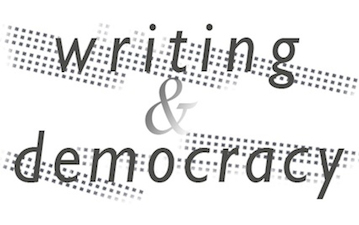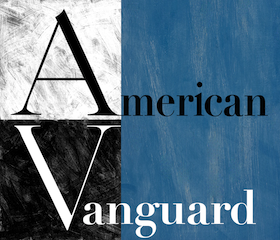Reflection: Suzannah Lessard
While my primary perch at the New School has been in the MFA program, I was immediately attracted by the idea of teaching in the Riggio Program. It was the title, “for Writing and Democracy,” that thrilled me. This is because I have long seen non-fiction especially as belonging in the arena of our public life. And yet, in my experience, the culture of creative writing programs does not include a strong sense of this, despite the fact that so many of the great forms of non-fiction, such as literary reporting and opinion writing, are directly relevant to our life as a society. Indeed, non-fiction writing is explicitly protected by the First Amendment to a degree greater than in any other nation.
My very first class confirmed a desire among students for just this connection between their writing and the sense of political and social commitment. They were excited about it, and eager to engage in a way not always true of undergraduates. Not only did the conception of the program create an invigorating focus to our workshop, but it affirmed the importance of what we were doing.
That first class was, indeed, a reporting and opinion-writing workshop. Something I noticed immediately was how suited these forms were to the young age of many of the students; how right it was for them to be thrust out into the world, asked to engage with reality, and make sense of it rather than to turn inward. It was obvious for me right from the start that in the Riggio Program, there was a brilliant match between this aspect of non-fiction writing, long neglected in creative programs, and a student interest and need.
Eventually I started teaching memoir and essay as well, forms that are not so obviously “democracy”-related. And yet, they are also protected by the First Amendment, especially in the case of memoir. Courts have held that memoirs contribute to the depth of our understanding of the conditions in our society, such as gender relations and the struggle to resolve differences between traditional backgrounds and American life, making us better able to participate as voters and citizens. Essay writing is often whimsical and creative; but it is also a form of thought with its own standards of precision and its own unique capacity for probing life. It is especially so for illuminating those personal aspects of life that are also held in common. Teaching these forms in the context of the Riggio program and the idea of “Writing and Democracy” has given a breadth and depth to my approach that would have been hard to achieve on my own.
In the course of this, my own predilections and instincts about the deep political meaning of even the most creative and intimate work have been outwardly affirmed in a way that has encouraged me to go forward. I have, for example, just finished a book that is, in effect, a kind of reportorial essay in which the most vastly public issues, such as climate change, are connected to quirky personal experience. This follows a kind of logic quite different from the usual approach to public subjects. Our society suffers from a kind of compartmentalization in which our public issues are discussed mainly within coordinates that exclude the rest of life, crippling us at a time when the unprecedented nature of the conditions we face require the widest possible reference in our “conversation.” The Riggio Program, by accentuating that breadth, by connecting creativity to societal responsibility, has established an important forum, encouraging experimentation and development of that principle.
Read Suzannah Lessard’s “Homage to Bill McKibben.”
Suzannah Lessard began her career as a writer/editor for the Washington Monthly and was a staff writer at the New Yorker for 20 years. In 1996, she authored Architect of Desire: Beauty and Danger in the Stanford White Family, published by Dial Press. In recent years, her articles have appeared in the New York Times Magazine, Architectural Record, Architectural Digest, the New Yorker, and Wilson Quarterly. She has taught writing and led master classes at Columbia School of the Arts, Wesleyan University, The New School, George Mason University, George Washington University, and Goucher College, and has co-taught a seminar on Trials in Literature at Georgetown University Law Center and Fordham Law School. She recently received an Anthony Lukas Award to write a book about the decentralization of the American landscape (to be published by Dial Press).



